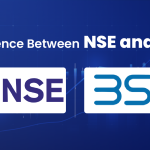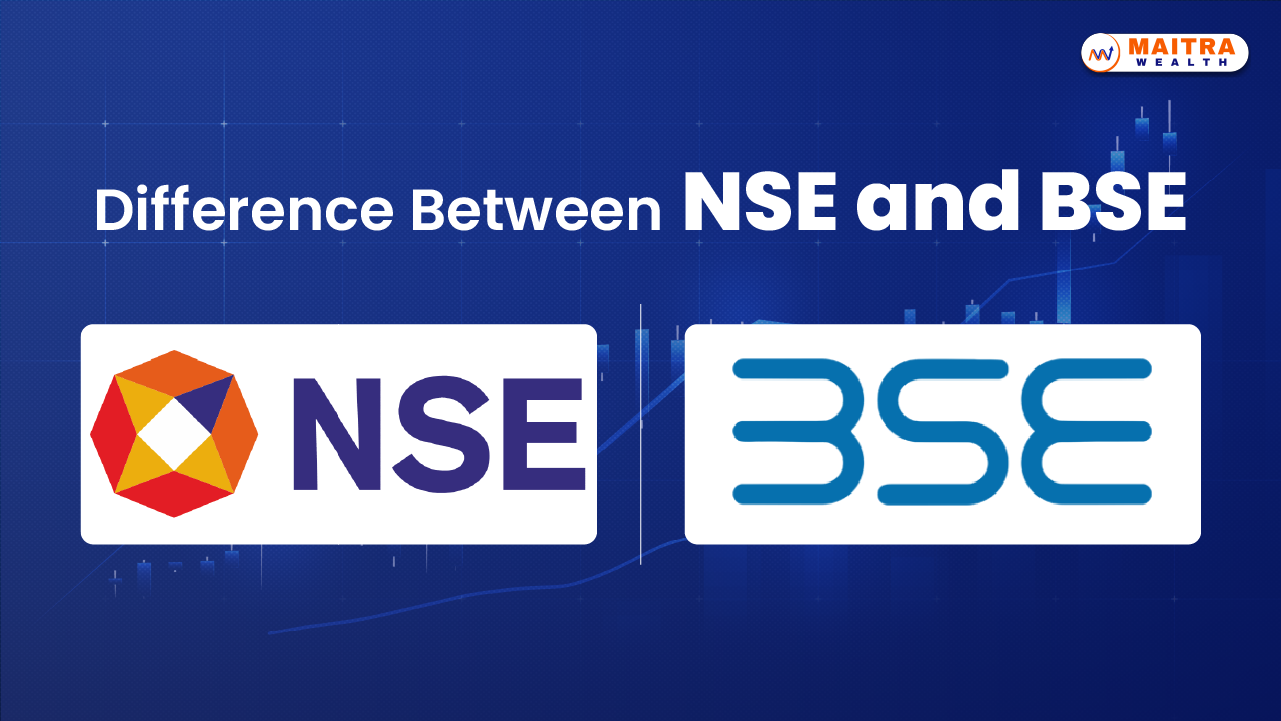The National Stock Exchange (NSE) and the Bombay Stock Exchange (BSE) are two of the major stock exchanges in India. While both serve the primary function of facilitating the buying and selling of securities, they have distinct characteristics and differences. Here’s a comprehensive comparison between the two:
| Basis for comparison | BSE | NSE |
| Establishment | Established in 1875, the Bombay Stock Exchange is the oldest stock exchange in Asia and one of the oldest in the world. | Founded in 1992, the National Stock Exchange is a relatively newer exchange but has rapidly gained prominence. |
| Location | Located in Mumbai, Maharashtra, it is often referred to as the “BSE” or “Bombay Stock Exchange.” | Also based in Mumbai, the NSE is often referred to simply as the “NSE.” |
| Market Capitalization | Historically, BSE had a larger number of listed companies, but its overall market capitalization has been lower than that of the NSE in recent years. | NSE has emerged as the largest stock exchange in India in terms of market capitalization and trading volume. |
| Trading System | Initially operated on a traditional open outcry system, BSE has since transitioned to an electronic trading system known as BOLT (BSE Online Trading System). | NSE was established with a fully electronic trading system from the outset, making it more modern and efficient in terms of trade execution. |
| Indices | The primary index of BSE is the Sensex (Bombay Stock Exchange Sensitive Index), which comprises 30 of the largest and most actively traded stocks on the exchange. | The main index of NSE is the NIFTY 50, which includes 50 of the largest and most liquid stocks listed on the exchange. |
| Listing Requirements | Generally has more relaxed listing requirements, making it easier for smaller companies to get listed. | Has stricter listing criteria, which may be more challenging for smaller companies but ensures higher quality listings. |
| Trading Hours | Operates typically from 9:15 AM to 3:30 PM IST, with a pre-opening session from 9:00 AM to 9:15 AM. | Operates typically from 9:15 AM to 3:30 PM IST, with a pre-opening session from 9:00 AM to 9:15 AM. |
| Investor Base | Historically had a more retail investor base, but this has been changing with the rise of institutional investments. | Attracts a significant amount of institutional and foreign investment, contributing to its larger trading volumes. |
| Technology and Innovation | While BSE has made strides in technology, it has been perceived as slower to adopt new technological innovations compared to NSE. | Known for its advanced technological infrastructure and innovations, NSE has introduced various trading products and services, including derivatives and exchange-traded funds (ETFs). |
| Market Share | Holds a smaller share of the overall trading volume compared to NSE. | Commands a majority share of the trading volume in the Indian stock market. |
Conclusion
Both the NSE and BSE play crucial roles in the Indian financial market. While the BSE is steeped in history and tradition, the NSE has established itself as a leader in terms of market capitalization and trading volume. Investors can choose to trade on either exchange based on their preferences, but the NSE is often favored for its efficiency, technological advancements, and larger market share.











